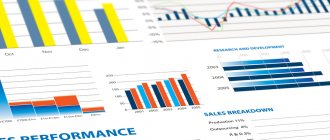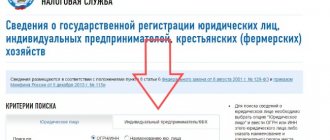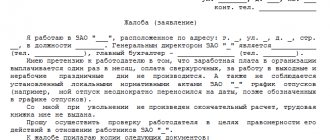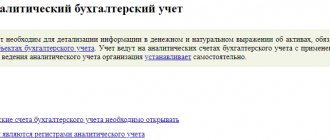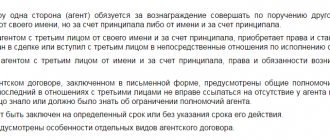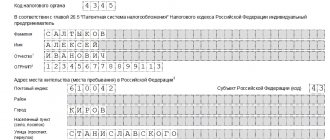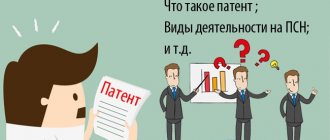The purpose of introducing the law on self-employed
When introducing Federal Law No. 422 on self-employed citizens of the Russian Federation, the legislator pursued several goals at once.
First of all, this is a large-scale “removal from the shadows” of people who currently do not have an official place of work, but at the same time regularly receive income from any activity. In order to understand the scale, at the beginning of 2020 the number of self-employed people was about 22,000,000 people. The second goal is to generate additional income for the benefit of the state. With such a huge number of people belonging to this category, the introduction of a tax law for self-employed citizens has been long overdue. This conclusion can be made by referring to the legislation, and specifically to the Tax Code of the Russian Federation. It was there that the concept of a self-employed person appeared in 2020, but so far no legal consequences associated with obtaining such status have been determined.
In addition, the introduction of a law for the self-employed from January 1, 2019 should regulate at the legislative level both the rights and obligations of both parties (both customers and service providers), since civil legal relations will fall under the scope of this federal law and in the event of violation, any of the parties will be able to apply for restoration of their violated rights without any problems.
The last point is rather a formality, since in order to prove the existence of certain agreements and be able to defend the right to their implementation, an agreement must previously be concluded between both persons, which will be the subject of the proceedings. In case of its absence, in fact, you will be deprived of the right to protect your interests by the state.
How to avoid account blocking for a self-employed person?
Since the issue of blocking accounts of self-employed people has already gained resonance, explanations can be found in the media from the banks themselves and from the Federal Tax Service. The first recommendation, in which they are united: a self-employed person must notify the bank that he is self-employed.
The second recommendation comes only from banks: it is necessary to describe in the notification some characteristics of the activity so that the bank can understand that a specific operation is the legally declared income of a self-employed person, and not the financing of terrorism, for example. Therefore, it is advisable to indicate in the notification:
- approximate amounts and frequency of receipts to the account;
- the type of activity for which payment will be transferred.
The third widely discussed question is whether it is necessary to open a separate account for income from self-employment? Employees of some banks (for example, VTB) say that this is not necessary. Representatives of most other banks (including Sberbank) draw attention to the problems that may arise if the movement of money from self-employment and personal transactions is mixed in one account. For example, for now there are no audits of the self-employed, but in the future you will have to explain to the tax authorities why the amount “from Aunt Masha” was credited to the self-employed account, but was not included in the income for taxation?
Hence the third recommendation - in order to avoid problems, it is better to allocate a separate account for self-employment transactions and indicate it in the notification to the bank.
When was it accepted and what is the validity period?
The Federal Law on self-employed citizens of the Russian Federation was approved on November 27, 2018. Prior to this, on November 15, 2018, it was adopted by the State Duma, and on November 23 it was approved by the Federation Council.
The validity period of this federal law is 10 years, that is, from 01/01/2019 to 12/31/2028 inclusive.
This period is established only for pilot regions and does not affect the entire territory of the Russian Federation. It is likely that if this law is effective, in a few years its term may be changed to unlimited, and the project itself will cease to be an experiment.
Types of activities for the self-employed
The law does not specify a closed list of activities for the self-employed; you will not find a specific OKVED code for the self-employed.
You should focus on the conditions for applying the NAP.
In the My Tax application there is a list of types of activities for self-employed people that you can choose when registering:
- Car wash
- Car service
- Car evacuation and towing
- Administration
- Data analysis
- Animator
- Apartments for rent
- Rent a car
- Artist, musician, singer
- Landscaping
- Accountant
- Household repairs
- Domestic services
- Animal vaccination
- Webmaster
- Housekeeping
- Presenter, showman, toastmaster
- Layout and design
- Driver
- Guide, tour guide
- Loader
- Grooming
- Governess
- Nutritionist
- Design
- Delivery
- Trainer
- Livestock
- Publishing services
- Research
- Cynology
- Computer wizard
- Confectioner
- Consulting
- Copywriter
- Cosmetologist
- Blacksmith
- Forest, hunting, fishing
- Speech therapist
- Mani Pedi
- Marketing, advertising
- Masseur
- Metalworking
- Model
- Fashion designer, designer
- Tax consultant
- Porter
- Nanny
- Security
- Data processing
- Ritual services
- Service
- Operator
- Polls collecting opinions
- Finishing
- Digitization
- Hairdresser
- Translator
- Cargo transportation
- Transportation of passengers
- Animal foster care
- Recycling
- Writer
- Paid toilets
- Cook
- Printing
- Sewing
- Reception and delivery of scrap
- Programmer
- Own production
- Design
- Manufacturing Services
- Rental
- Other
- Psychologist
- Repair of household appliances
- Renovation of apartments
- Tutor
- Restoration
- Realtor
- Plumber
- Agricultural services
- Nurse
- Social help
- Stylist
- Joiner, carpenter
- Watchman
- Insurance services
- Construction
- Tattoo and piercing
- Technical support
- Maintenance
- Fabrics, cutting and sewing
- Trainer, instructor
- Cleaning
- Temporary accommodation services
- Assembly services
- Storage services
- Animal care
- Teacher
- Financial services
- Photographer
- Dry cleaning
- Artist
- Electrician
- Epilation
- Legal services
Starting regions for the pilot project of the law on the self-employed
The following subjects of the Russian Federation were selected as pilot regions for the implementation of the bill on self-employed citizens:
- Moscow;
- Moscow region;
- Kaluga region;
- Republic of Tatarstan.
It is in these regions that, from January 1, 2020, the implementation of an experiment on collecting taxes from self-employed citizens and their registration in the taxation system will begin.
According to the lawmakers, if the law on self-employed citizens for 2020 is successfully implemented, its effect can be extended to the entire territory of Russia starting from 2020.
List of regions
The experiment will be introduced in 19 regions:
- Voronezh;
- Volgogradskaya;
- Leningradskaya;
- Nizhny Novgorod;
- Novosibirsk;
- Omsk;
- Rostovskaya;
- Tyumen;
- Sverdlovskaya;
- Chelyabinskaya;
- Samara;
- Sakhalinskaya;
- Perm region;
- Krasnoyarsk region;
- Nenets Autonomous Okrug;
- Khanty-Mansiysk Autonomous Okrug - Ugra;
- Yamalo-Nenets Autonomous Okrug;
- Bashkortostan;
- Saint Petersburg.
General provisions of the law on self-employed people
First of all, it is worth saying that Federal Law-422 is primarily an “experiment” in the implementation of the new tax regime “tax on professional income”. In selected pilot regions, Federal Tax Service specialists are going to test the system for collecting this tax, and also establish what difficulties people may encounter when implementing this system throughout the Russian Federation.
The Law on Self-Employed Persons indicates that for 10 years after its adoption, the tax rate levied on the income of self-employed citizens cannot be changed. Upon acceptance of the document, it was set at 4% (if the service or product was sold to an individual) and 6% if the other party to the agreement is a legal entity. In addition, the income limit cannot be reduced.
The principle of tax collection itself will be structured as follows:
- A self-employed citizen must independently download and register in the “My Tax” mobile application. This application is available on both Android and IOS.
- During your activities, conduct or indicate financial transactions in this application.
- At the end of the tax period, the application independently calculates the amount required for tax deduction.
We wrote earlier how to pay taxes for a self-employed citizen.
On paper, citizens, in comparison with the same individual entrepreneurs, are exempt from paying additional contributions to:
- Compulsory Medical Insurance Fund (CHI Fund).
- Social Insurance Fund (Pension Fund).
But if you look at it in practice, the tax office will act as a kind of “aggregator”, which, after receiving the full payment amount (4 or 6%), will distribute 0.25 for the Compulsory Medical Insurance Fund and 1.25 for the Mandatory Social Insurance Fund.
The legislator came to this decision in order to simplify the tax payment process. With that in mind, here's what the distribution of your taxes paid looks like in practice:
| How is it distributed? | In what proportion |
| Federal Tax Service (FTS) (what remains of your payment) |
|
| Mandatory Social Insurance Fund (PF of the Russian Federation or non-state PF) |
|
| Compulsory Health Insurance Fund (CHI) |
|
It is impossible not to mention this interesting fact. Although not explicitly, through the Federal Tax Service, self-employed citizens will make contributions to the Mandatory Social Insurance Fund. It would seem that this is the guarantee of your future pension, but everything is not so simple. The fact is that even if you regularly pay taxes to the Federal Tax Service all your life, of which 1.25% will be deducted to the Pension Fund of the Russian Federation, then by the time you retire you will still not be able to earn enough points even for the minimum insurance pension. The maximum you can count on is receiving a social pension (equal to the minimum subsistence level). In this case, there is no point in paying any taxes related to self-employment, since such a pension is assigned to absolutely all citizens who have reached retirement age, even if they have not worked a day in their lives.
Tax holidays
Tax holidays began on January 1, 2020 and were extended several times. The last time their deadline was extended to December 31, 2018, although the extension project is already in the State Duma. You can track its adoption by following this link. At the time of writing, consideration of the bill has been postponed to December 13, 2020, so there is a good chance it will be done before the New Year.
It is worth noting here that on the website of the Federal Tax Service, in the section about the patent tax system, it is said that the holidays will be extended until 2020, however, the project has not yet been signed.
Vacations assume that a citizen will register his activities by submitting a notification on this form and will work as an individual entrepreneur, but:
- Will not pay taxes during the holidays.
- Will not make insurance premiums.
After the end of this period, the entrepreneur must decide what further development of events is most successful for him. The legislation offers 3 options:
- Now submit the notification using the individual entrepreneur form, and choose the appropriate one from the existing tax regimes. For the self-employed, this is a patent.
- Pay personal income tax 13% monthly.
- Finish your activities and no longer participate in the project.
There is another way - to continue working without registration, but this makes the initial use of the mode’s capabilities meaningless. Moreover, holidays, according to many self-employed people, are a common trap. After all, by submitting a notification, the Federal Tax Service will immediately learn about their activities, which can continue to monitor the citizen who has refused further participation. This is one of the main reasons why the vacation project was unsuccessful, because out of several tens of millions of self-employed people, about a thousand people have registered their own small businesses since 2020.
Who is covered by this law?
The main criterion for an individual to register and work as self-employed is the maximum income threshold. According to the law, income should not exceed 2,400,000 rubles per year. If this condition is not met, the individual will be offered two options:
- Register as an individual entrepreneur;
- Register your own Legal Entity (LLC, JSC, etc.).
In addition, those registering as self-employed must meet the following requirements:
- reach the age of sixteen;
- do not have hired employees;
- engage in the activities listed in the list.
Only if the above criteria are met, a person has the right to register in the system and pay “tax on his professional income.”
If we approach the issue more specifically, then at the moment 63 types of activities are meant by self-employed citizens. The main ones are:
- tutors (or persons providing similar educational/teaching services for a fee);
- freelancers (their range is very wide, these can be copywriters and rewriters, as well as web design specialists and other people who work remotely but do not have official employment);
- photographers/video operators;
- taxi drivers;
- rental of housing;
- fabric/leather goods repair specialists (home-based seamstresses, shoemakers, etc.).
This list is not final, since the constituent entities of the Russian Federation implementing this bill have the right to introduce new types of activities at their discretion.
Patent system
This is the most commonly used scheme of action. This tax regime began to exist 4 years before the holidays, but still it cannot be called successful. Few self-employed people use it, although this method is the most familiar and understandable for them.
The patent regime involves registering your self-employment by submitting a notification in the required form to the Federal Tax Service. It is important to fill out this if it is transferred:
- Personally at the Federal Tax Service.
- Confidant.
- By mail.
For electronic notification, the form is different and is available here. Here you can find the filling rules.
After this, the tax service confirms the registration, and the self-employed can carry out their activities, making insurance contributions and paying taxes. For the patent regime, there is only one payment to the Federal Tax Service, which replaces:
- VAT.
- Personal income tax.
- Property tax for individuals.
The contribution amount is calculated simply. Each citizen takes out a patent for a certain number of months - from 1 to 12. It is important to note that its validity period must fit within a calendar year. That is, every time after the New Year a new patent begins.
The tax base is the entire income that a citizen received during the validity period of the patent. It must be divided by 12 (months), and then multiplied by the number of months in the acquired patent. The resulting number will need to be multiplied again, now by 6% - the tax rate. The resulting number will be the tax that the citizen must pay.
But the patent worker is also required to make insurance contributions - for health and pension insurance. These amounts are fixed in January annually and are given until December 31 to pay them. In 2018 these amounts were:
- 26,545 rubles for the Pension Fund.
- 5,840 for compulsory medical insurance.
It is worth noting that the amounts described above are paid in this form only if the patent user does not have staff. According to the law, there can be assistants, but no more than 15 people. There are also the following restrictions:
- Annual income does not exceed 60 million rubles.
- Suitable activity. In addition to nannies, tutors and caregivers, there are other professions that the regions establish themselves.
Why can't the professional tax law be ignored?
Based on the results of preliminary surveys, at the end of 2018, only 0.5% of the total number of people employed in this area were ready to register as self-employed citizens. In this regard, in order to stimulate people’s desire to “come out of the shadows,” the adopted law contains a fairly strict system of sanctions that will be applied to those who decide to evade official registration.
If a person is caught carrying out such activities, a fine will be collected from him for the first time. The fine is currently 20% of the identified income, but cannot be less than 1,000 rubles).
If this measure does not work on you, and within the next 6 months after the first violation you commit a second violation, the fine will be more significant. Thus, in the event of a relapse, you risk losing 100% of your identified income, but not less than 5,000 rubles).
Thus, if your income is large enough, you inevitably risk suffering large losses if one of your transactions is detected by the Tax Service.
When self-employment is not suitable
- Prof. tax income cannot be used when selling excisable and marked goods.
- For resale of goods of property rights.
- For the extraction and sale of minerals.
- You cannot conduct intermediary activities in the interests of third parties.
In accordance with the order of the Government of the Russian Federation dated April 28, 2018 No. 792-r, the list of goods subject to mandatory labeling was approved:
- from March 1, 2020 - tobacco products;
- from July 1, 2020 – shoes,
- from December 1, 2020 - perfumes and eau de toilette, tires, cameras, flash lamps, flash lamps, some light industrial products.
Self-employment is suitable if you are going to:
- work independently without involving employees under employment contracts,
- without an employer
- with an income limit of up to 2.4 million rubles,
- in the region where the regime is introduced,
- sell services, works, goods only of your own production, made independently. Those. NOT resale of goods.
- DO NOT work in the interests of another person under intermediary agreements.
